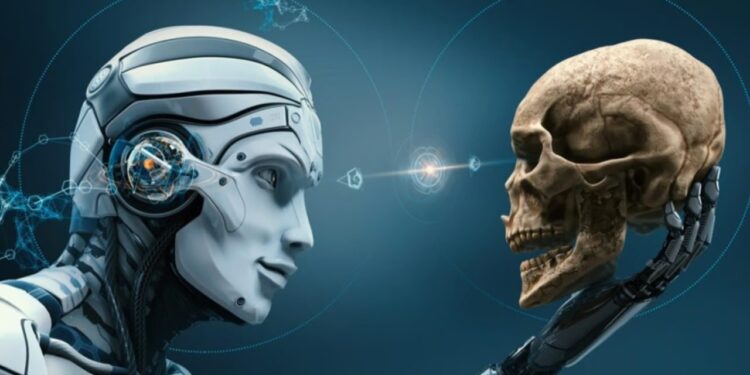With artificial intelligence (AI) progressing at an unprecedented pace, the potential of human workers’ displacement is an increasingly pressing concern.
Experts have closely examined various job roles and identified those most vulnerable to being replaced by AI technologies. From customer service representatives to manufacturing workers, the impact of AI on the job market is becoming increasingly evident. In this article, we delve into the specific job roles that experts have identified as high-risk in the face of AI replacement, highlighting the potential challenges and implications for the workforce. Understanding these dynamics is crucial as we navigate the evolving relationship between humans and AI in the workplace.
Customer Service Representatives and Call Center Operators
Given the rise of AI-fueled chatbots and virtual assistants, customer support representatives and call center employees are under significant threat of job displacement. AI systems can resolve customer inquiries and assist, potentially shrinking the need for human interference.
Drivers: Truck Drivers, Taxi Drivers, and Delivery Personnel
The emergence of self-driving technology and autonomous vehicles poses a significant threat to jobs in the transportation industry. Truck drivers, taxi drivers, and delivery workers may face the risk of being replaced by AI-controlled vehicles, which have the potential to operate without human involvement.
Data Entry Clerks and Data Analysts
AI algorithms and automated data processing systems can streamline data-related tasks and perform data analysis. This poses challenges for data entry clerks and data analysts, as AI technologies can rapidly process enormous quantities of data, potentially reducing the need for manual data-related jobs.
Manufacturing and Production Line Employees
Advancements in robotics and automation technologies can potentially replace human workers in manufacturing and production line roles. AI-powered robots can perform repetitive tasks with extreme precision, leading to concerns about the future of human workers in these sectors.
Financial Analysts and Investment Advisors
The potential of AI-driven algorithms and machine learning models in the financial realm may change the landscape for financial analysts and investment consultants. AI systems can analyze vast amounts of financial data and provide recommendations, potentially affecting the need for human expertise in these roles.
Legal Research Assistants
In the legal sector, AI technologies are being employed to perform legal research and analysis. AI-powered systems can quickly scan and process extensive legal documents, potentially impacting the future role of legal research assistants.
Customer Support Representatives in E-commerce
With the rise of AI-powered chatbots and virtual assistants in e-commerce platforms, customer support representatives face the risk of being replaced. AI systems can handle customer inquiries, provide assistance, and even process transactions, potentially reducing the need for human participation.
Content Writers and Copywriters
AI technologies have shown advancements in natural language generation, which raises concerns about the future of content writers and copywriters. AI systems can generate written content comparable to human quality, potentially impacting the demand for human writers across various sectors.
In conclusion, the brisk evolution of AI poses risks to diverse job roles across multiple industries. While AI brings numerous benefits, such as enhanced efficiency and accuracy, it is crucial to identify the potential impact on human employment. Adapting to this changing landscape will require a combination of upskilling, embracing AI as a tool, and focusing on roles that require uniquely human skills that are difficult to replicate.


